Villages like Utah whose residents are beneficiaries of a massive land claim remain underdeveloped and without basic services such as water. (Lucas Ledwaba)
Centenarian Spokes Sithole is a depressed and worried man. He lives with the constant agony that he may not live long enough to realise the resolution to a raging conflict besetting the almost R1-billion Mala Mala land-restitution settlement, in which he was one of the claimants.
On January 9 2014, Sithole was among the people who gathered on a field in Lilydale village in Mpumalanga, to witness then president Jacob Zuma preside over the ceremonial handover of land back to the N’wandlamhari Communal Property Association (NCPA).
“May you enjoy much prosperity and success from this powerful resource, and may you ensure that it remains productive,” Zuma told the community.
However, six years later, Sithole and many of the claimants say success and prosperity resulting from the deal remain a pipe dream.
The settlement has been beset by mounting problems, including court battles pitting different factions from the community and the NCPA against each other, accusations and allegations of corruption amounting to millions of rands, nepotism and a lack of transparency.
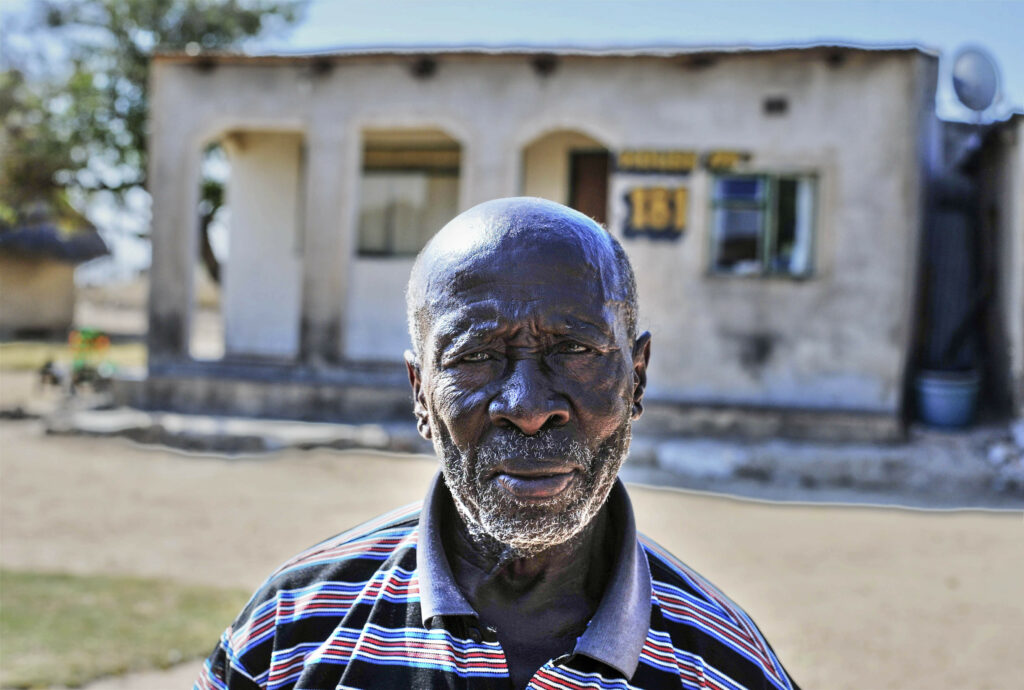 Centenarian Spokes Sithole recalls a time when they were forcibly removed from their land and is now fighting to be compensated by his community. (Lucas Ledwaba)
Centenarian Spokes Sithole recalls a time when they were forcibly removed from their land and is now fighting to be compensated by his community. (Lucas Ledwaba)
A letter to Didiza
In the latest attempt to resolve the problems plaguing the community, some of the claimants have written a letter to Minister of Agriculture, Land Reform and Rural Development Thoko Didiza, asking her to intervene. They also want Didiza to set up a forensic investigation into the affairs of the NCPA.
With a settlement amount of R 939 360 000, the Mala Mala land claim was by far one of the most significant settlements since the passing of the Restitution of Land Rights Act of 1994.
The community lodged claims against 21 properties, consisting of 63 portions, adding up to 65 000 hectares in total. Most of the land included the elite, internationally renowned privately owned luxury Mala Mala Game Reserve, which lies within the Kruger National Park.
A total of five farms, consisting of nine portions, and totalling 13 184ha were restored to the community.
In the letter to Didiza, whose office did not respond to a media enquiry, the claimants ask the minister to visit their area and also to comply with an earlier court order to institute an investigation.
“Ever since the land has been restituted to us, we have never seen a single audited financial statement,” said one of the claimants, Dion Mnisi.
He was elected chairperson of the NCPA at a hotly disputed meeting in November last year. But according to Louise du Plessis, a lawyer representing the original NCPA, it appears Mnisi’s election is not recognised and his structure is treated as a parallel, illegitimate committee.
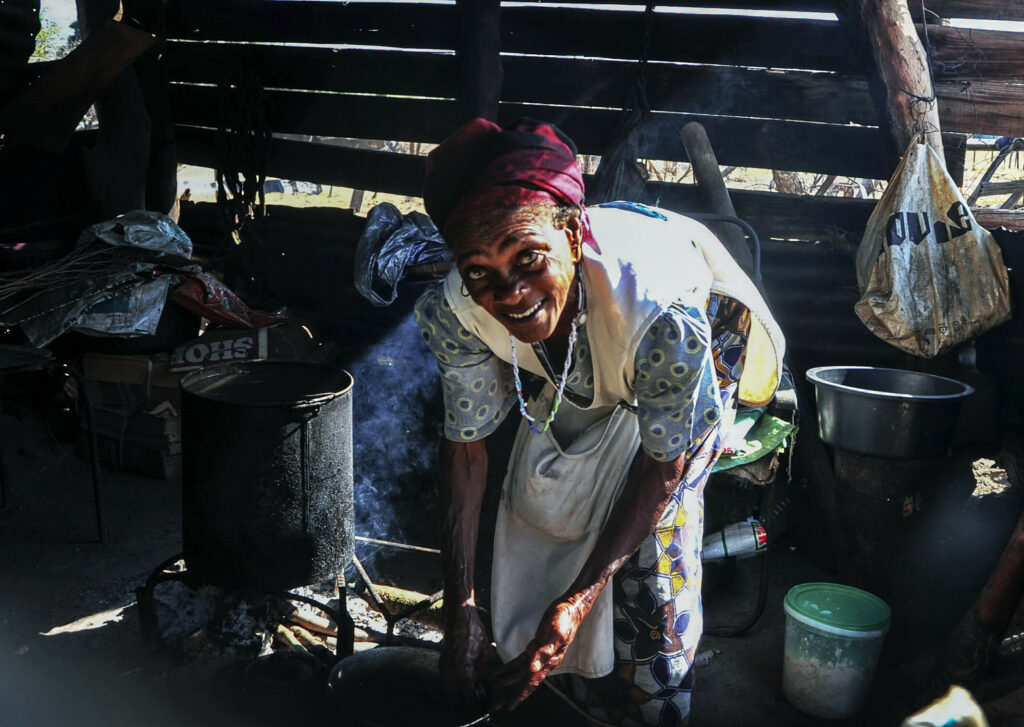 A hair salon in Justicia is one of the few sources of income for residents who are beneficiaries of a land claim. (Lucas Ledwaba)
A hair salon in Justicia is one of the few sources of income for residents who are beneficiaries of a land claim. (Lucas Ledwaba)
Du Plessis acknowledged that the term of the current NCPA committee came to an end late last year.
“The NCPA committee has done everything in its power to comply with its constitution and the CPA [Communal Property Associations] Act to hold new elections in 2019. They had made three attempts to hold elections before their term expired. But each [time] these special elective meetings were disrupted by certain factions,” Du Plessis said in a written statement.
She said that, because of the frequency of the disruptions, the NCPA has instructed lawyers to approach the courts to ensure that elections take place; alternatively, that the current NCPA be recognised as the interim committee pending the outcome of the litigation before the land claims court.
The game reserve’s position
Alison Morphet of Mala Mala Game Reserve said the reserve is aware that there are certain “factions” within the NCPA. However, since the conclusion of a lease agreement in March 2016, it has always dealt with Derick Mthabine, who sits on the Mala Mala Game Reserve board of directors.
She said other dealings have been with Sylvia Tonga and Freddie Mthombeni. They are the NCPA’s representatives on the joint liaison committee, in addition to Du Plessis, the NCPA’s attorney.
Mthabine was among the NCPA officials who were reprimanded by the parliamentary portfolio committee on rural development and land reform last year for failing to present accurate statements and for failing to provide MPs with satisfactory answers.
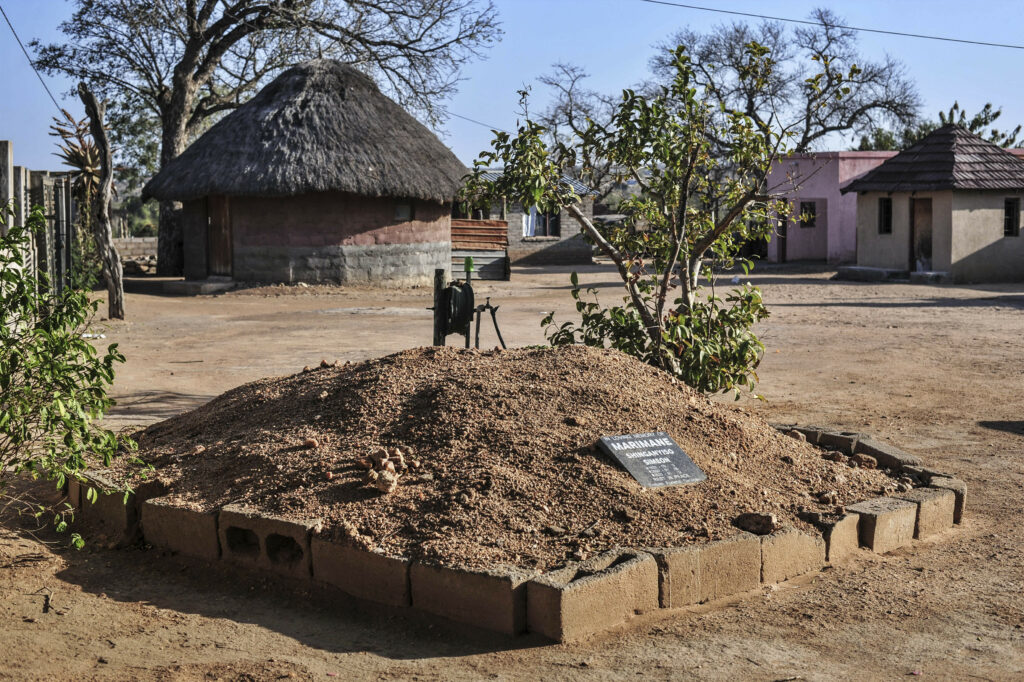 Shinganyiso Samson Marimane died before he could see the resolution of araging battle over a R1-billion land claim in which he was a claimant. (Lucas Ledwaba)
Shinganyiso Samson Marimane died before he could see the resolution of araging battle over a R1-billion land claim in which he was a claimant. (Lucas Ledwaba)
It also emerged during the parliamentary meeting that one of the NCPA’s senior officials called to account had abandoned the meeting without notice and went to sleep in his hotel room. Then committee chairperson Phumzile Ngwenya-Mabila lambasted the NCPA for turning the institution into “a banana parliament”.
Meanwhile, Mnisi said the NCPA structure is failing to account to the community and making it impossible for the newly elected committee to do its work. They also point to Mthabine as a central figure in the disputes.
“The thing that is killing us as a community is that everything is done outside the law; there is no resolution — they just do everything the way they please. And the lawyers [who] are supposed to act as the secretariat of the people: they do not do anything. They get paid almost every month; they don’t care — they don’t meet with the people. They do not care about the community they claim to be representing,” Mnisi said.
As part of the land claim settlement, the Mala Mala Game Reserve owners were allowed a transitional period that would expire on January 31 2015, which provided for a monthly occupational rental amount of R700 000.
Mala Mala also committed its movable assets needed to run the business, as well as goodwill and the company brand, which is estimated to be valued at R38-million, as part of the deal to co-manage the reserve with the community.
Morphet said, in terms of the lease agreement, Mala Mala’s guests pay a community tourism levy into the Mintirho Community Development Trust, which was established to provide education and training to community members in the fields of eco-tourism and hospitality. She said that, to date, the trustees of the Mintirho Trust have all been appointed by the NCPA.
She said the trust has, so far, implemented community-development projects, including an extensive bursary and internship program that provides on-the-job training and work experience to students, among others.
The other side of the story
However, Mnisi disputed this, saying the community has not benefited from any of the projects mentioned and that the NCPA had failed to provide a list of the names of students who allegedly benefited from the bursary scheme.
Mnisi and Sithole said, since the deal was struck, the beneficiaries have, so far, received only two cash payouts of R60 000 and R10 000 and charged that “all those schemes, development, training programmes were just formalities; everything was just formalities.
“The best thing for us is to get a forensic investigation that would prove to us how much money was paid into the community’s coffers,” said Mnisi.
Morphet said the reserve has no objection to a forensic investigation and that, in terms of the lease agreement, Mala Mala Game Reserve pays an annual lease fee directly to the NCPA.
“It is then the NCPA’s responsibility to distribute the lease fees to the beneficiary households. Mala Mala is not involved in determining the quantum or the recipients of such distribution by the NCPA,” she said.
Du Plessis said the NCPA has maintained adequate financial oversight over its funds and assets and has obtained audited financial reports.
“It can account [for] all rental payments received in terms of the lease agreement, as well as payment made on behalf of the NCPA,” the lawyer said.
In this regard, said Du Plessis, the NCPA has “until recently, distributed R16-million to beneficiaries”.
In 2015-16, R10 000 was paid per household to 250 homes; during the next financial year, R30 000; and in 2017-18, R60 000 was paid to 250 homes.
But Mnisi disputed this, saying: “We are running to two full years without receiving any dividends.”
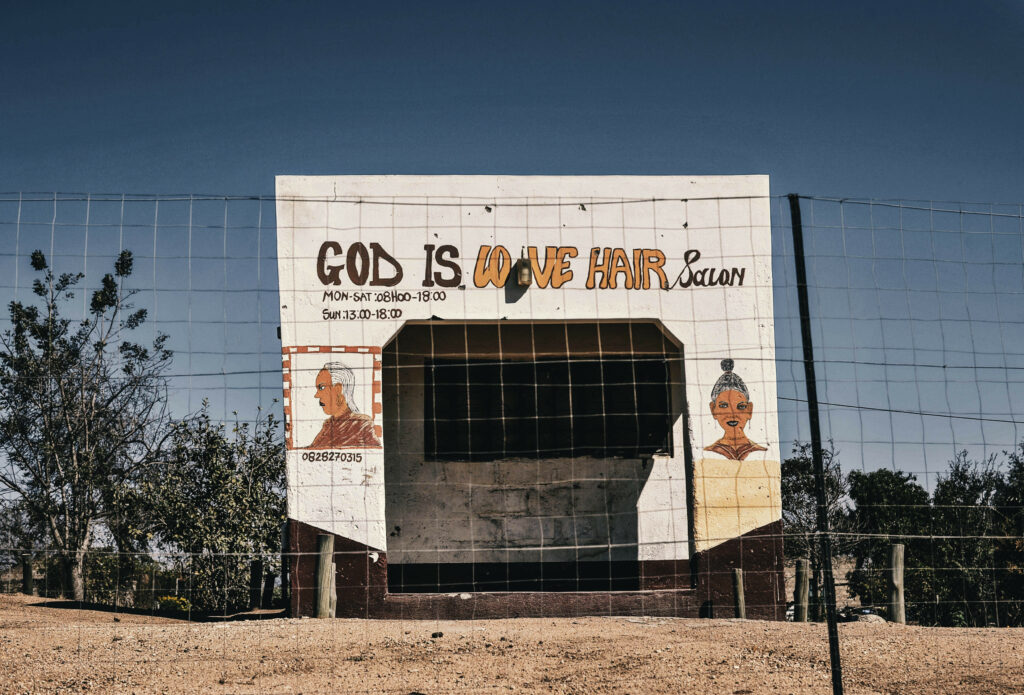 A hair salon in Justicia is one of the few sources of income for residents who are beneficiaries of a land claim. (Lucas Ledwaba)
A hair salon in Justicia is one of the few sources of income for residents who are beneficiaries of a land claim. (Lucas Ledwaba)
A tale of two communities
Mnisi pointed to the merging of the Mhlanganisweni and Mavuraka communities to form the NCPA as one of the leading causes of the problems besetting the claim.
He said the Mala Mala claim initially benefited only members of the Mhlanganisweni community. But at the advice of the government Mavuraka “came under the wing of Mhlanganisweni to learn, but they manipulated the system”.
The Mavuraka, who lived alongside the Mhlanganisweni community before the forced removals that commenced in the 1930s, lodged a separate land claim. However, the two claims were merged, allegedly at the insistence of the commission on restitution of land rights and the department of rural development and land reform.
“We firmly believe that this dispute lies at the core of most of the disputes within the community,” said Du Plessis, adding that the NCPA had instructed lawyers to resolve the matter, which is pending in the land claims court.
Du Plessis said, as a result of the ongoing Mavuraka dispute, the NCPA has agreed not to make any further distributions to its members until the case has been resolved. She said the NCPA is currently considering proposals to distribute a portion of the funds to its members and keep the rest in a trust account pending the outcome of the court case.
Last year Zamani Mathebula and seven others from the Mavuraka group approached the Pretoria high court to place the NCPA under administration. They argued that the administration of the NCPA claim was riddled with corruption.
Mathebula and other applicants also wanted the court to order the NCPA to submit all documents in its possession, including financial records, to the director general of the department of agriculture and rural development.
‘Nothing has changed’
Although in May 2019, the court dismissed the application to place the NCPA under the administration, the association was ordered to submit all documents in its possession, including financial records, to the director general, as well as to its members within 30 days of the order.
“Nothing has changed. The corrupt people have benefited. As you can see, poverty has hit the community hard. [There is] no water, but yet we are surrounded by million-dollar [operational] businesses. But because of the corruption, we are where we are today,” lamented Mathebula.
But as the court and boardroom battles rage, elders like Sithole worry they may never live to see the prosperity they expected when they initially lodged the claim before the December 31 1998 cut-off period.
“Most of the elderly beneficiaries are dying while the challenges remain unresolved,” Sithole and 14 others say in the letter addressed to Didiza last month.
Shinganyiso Simeone Maremane, 97, is one of the beneficiaries who died without ever seeing a resolution to the ongoing problems.
He died in January at his home in Utah, a remote village east of Acornhoek. Marimane was buried by the wall of his homestead.
“My father died of a very broken heart. That I am sure about because he was always talking about this issue of the land claim,” said one of his sons, Oscar Marimane.
Even though he was frail and had trouble hearing, Marimane never missed any of the meetings seeking to resolve the issues. The last one he attended decided to appoint a new executive of the NCPA in November last year.
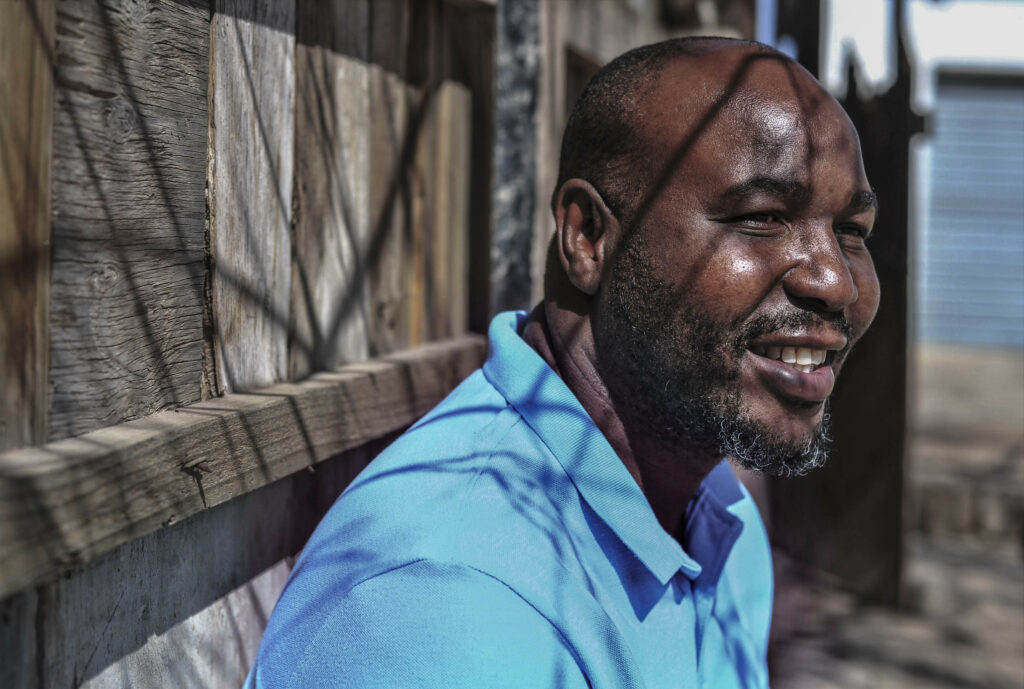 Zamani Mathebula is part of court action to have the NCPA placed under administration. (Lucas Ledwaba)
Zamani Mathebula is part of court action to have the NCPA placed under administration. (Lucas Ledwaba)
‘White men carrying guns’
Sithole, who was born in 1918, is equally deeply worried. He spends his days nursing the aches of old age and a broken heart at his home in Huntingdon village. To this day, he is still troubled by memories of the violent uprooting of his community “by white men carrying guns” in the 1930s.
“They just came and said the government had given them the land. They said the land belongs to the government. It does not belong to us. And we were required to leave the place because they want to start a business [a game reserve]. We followed the orders as we were told. Those who were left behind, they were used as slaves.”
With that, the community lost everything that they had known all their lives: the land and their prized cattle, some of which were shot and buried in a pit. “Some of them were left behind and eaten by the wild animals. There was nothing that could be done. We did not have the means to fight,” Sithole said.
Mnisi warned they would be forced to take drastic action if their latest attempts to resolve the issues fail.
“We have been misled for quite some time. If the minister doesn’t come, it’s then that we will consider opening a criminal case.
“If they don’t come, we also have a plan. We are just waiting for this lockdown to go to level one or two. We will open all the fences of the Sabi Sands [neighbouring game reserve incorporating Mala Mala]. Then we all lose,” he said. — Mukurukuru Media
This article was possible due to the support of the German Federal Foreign Office and the IFA (Institut für Auslandsbeziehungen) Zivik funding programme. The views presented in this article do not represent the views of the German Federal Foreign Office nor IFA.